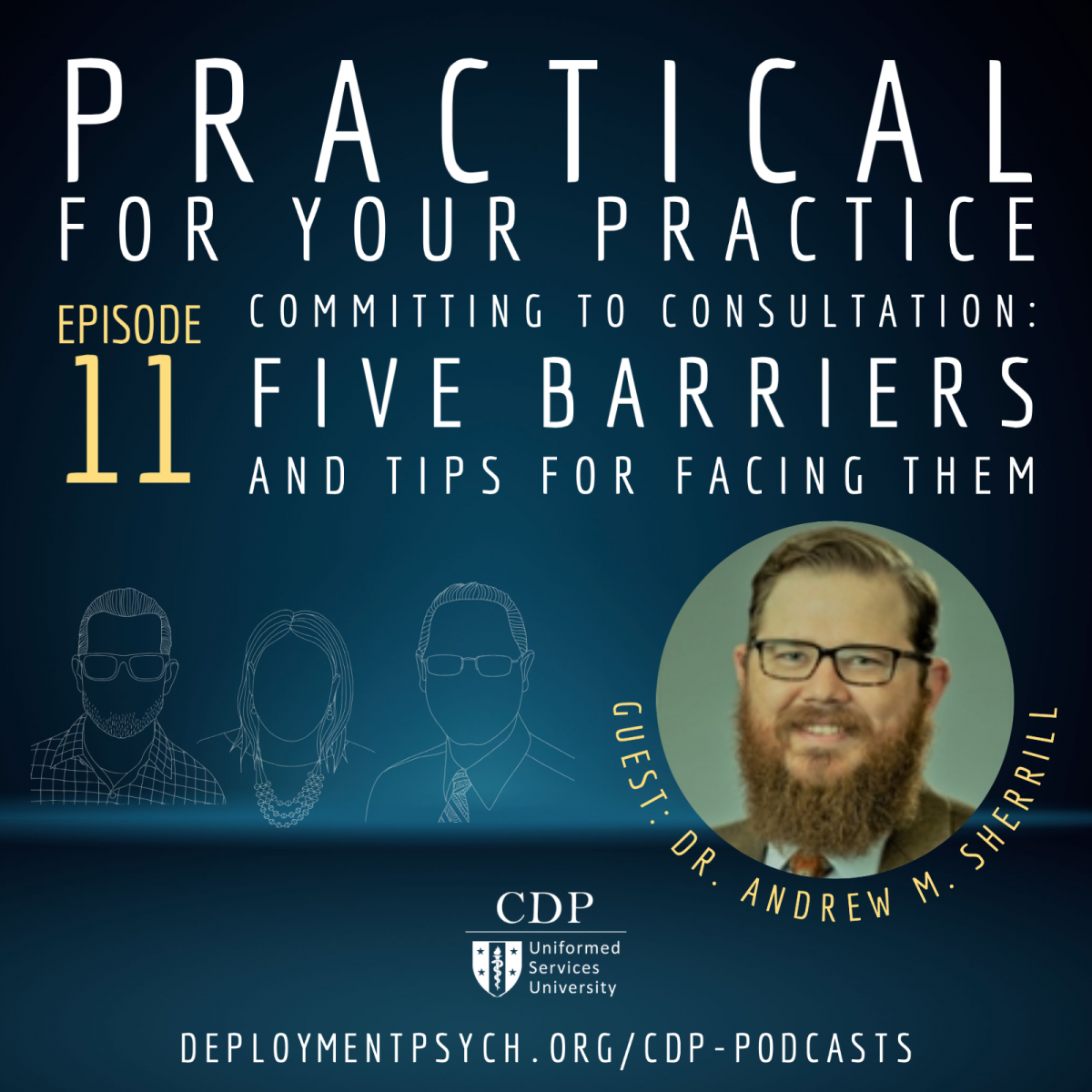 Episode 11: "Committing to Consultation: Five Barriers and Tips for Facing Them "
Episode 11: "Committing to Consultation: Five Barriers and Tips for Facing Them "
Guest: Andrew M. Sherrill, Ph.D.
Almost all of us clinicians agree that consultation helps us to be better at our jobs. Committing to the consultation can be another story. In this episode, Dr. Andrew Sherril of the Emory University Prolonged Exposure Consultant Training Program shares some actionable intel on facing, and overcoming, five common barriers to committing to consultation.
Join us as we discuss the interplay of common factors and EBP protocols, how they are not mutually exclusive, and how to make sure you are attending most to the real person and the real relationship with you in the room while applying EBP techniques.
 |
 |
 |
Show Notes:
Andrew M. Sherrill, Ph.D. is an assistant professor in the Department of Psychiatry and Behavioral Sciences and a practicing clinical psychologist at the Emory Healthcare Veterans Program and the Emory Healthcare OCD Program. He is also the program manager of the Emory University Prolonged Exposure Consultant Training Program. He received a Ph.D. in clinical psychology from Northern Illinois University. He completed his predoctoral internship at the American Lake Division of VA Puget Sound Healthcare System and his postdoctoral fellowship at Emory University School of Medicine. Dr. Sherrill’s clinical expertise includes behavior therapies for trauma- and anxiety-related disorders including prolonged exposure for posttraumatic stress disorder (PTSD), exposure and response prevention for obsessive-compulsive disorder (OCD), and acceptance and commitment therapy for a range of emotion disorders. His areas of specialization include the use of virtual reality in exposure therapies and the implementation of massed delivered evidence-based psychotherapy. His current research aims to understand the effective dissemination and implementation of exposure therapy and the development of mobile technologies that facilitate exposure therapy through pervasive health strategies in the areas of ubiquitous computing, human-computer interaction, and machine learning.
Resources mentioned in this episode:
Emory University Prolonged Exposure Consultant Training Program:
Calls-to-action:
Subscribe to the Practical for Your Practice Podcast
Subscribe to The Center for Deployment Psychology Monthly Email
This podcast is produced by the Center for Deployment Psychology at the Uniformed Services University of the Health Sciences. The views expressed are those of the speakers and do not necessarily reflect the opinions of the Uniformed Services University, the Department of Defense, or the US Government. In addition, reference to any specific company, products, processes, or services does not necessarily constitute or imply endorsement by the Uniformed Services University, the Department of Defense, or the US Government.
